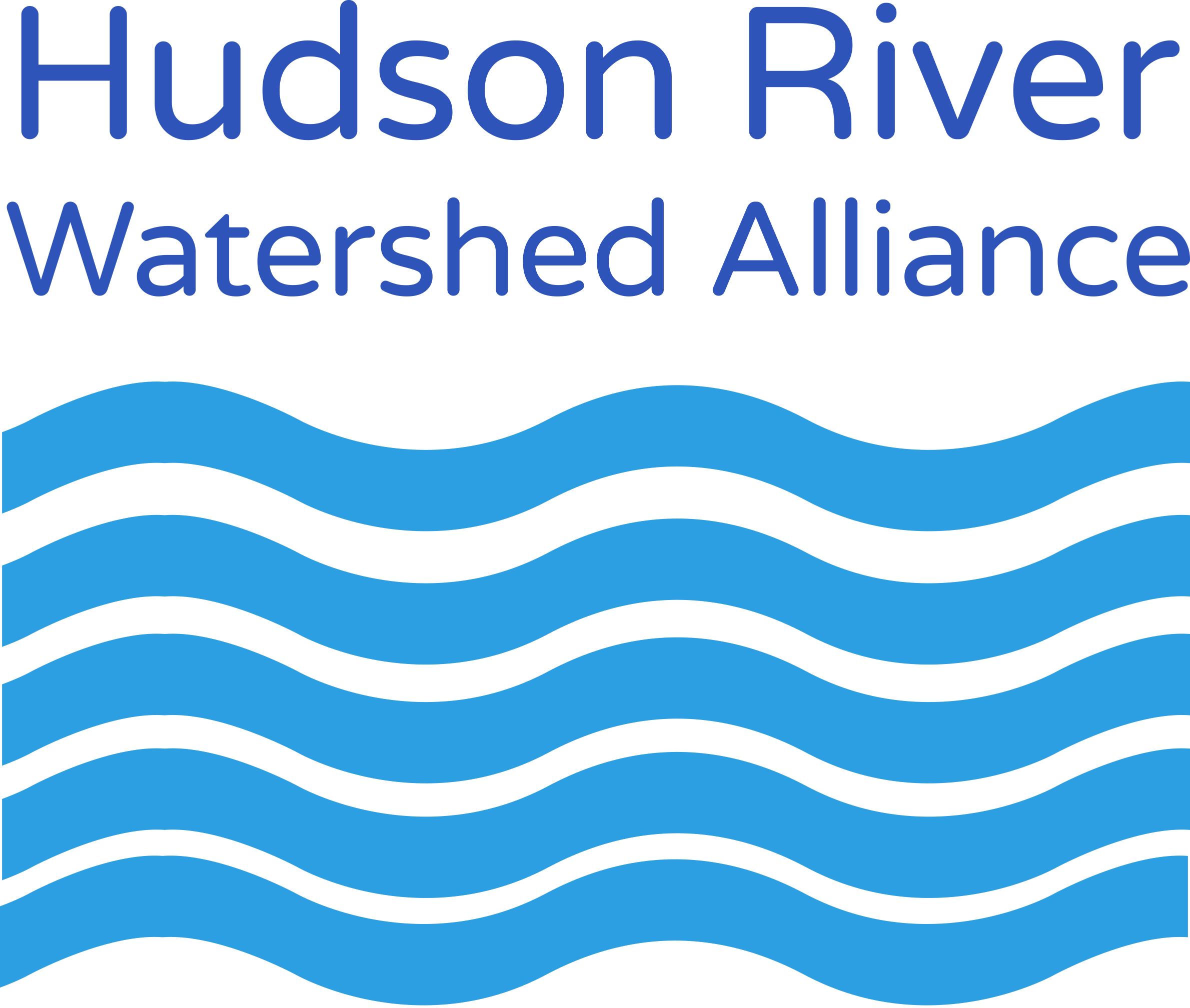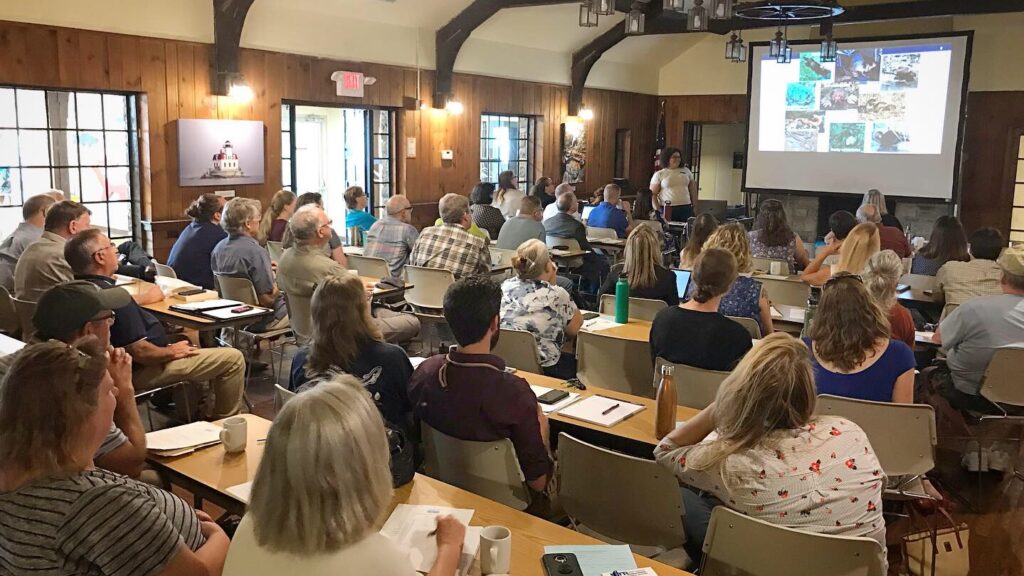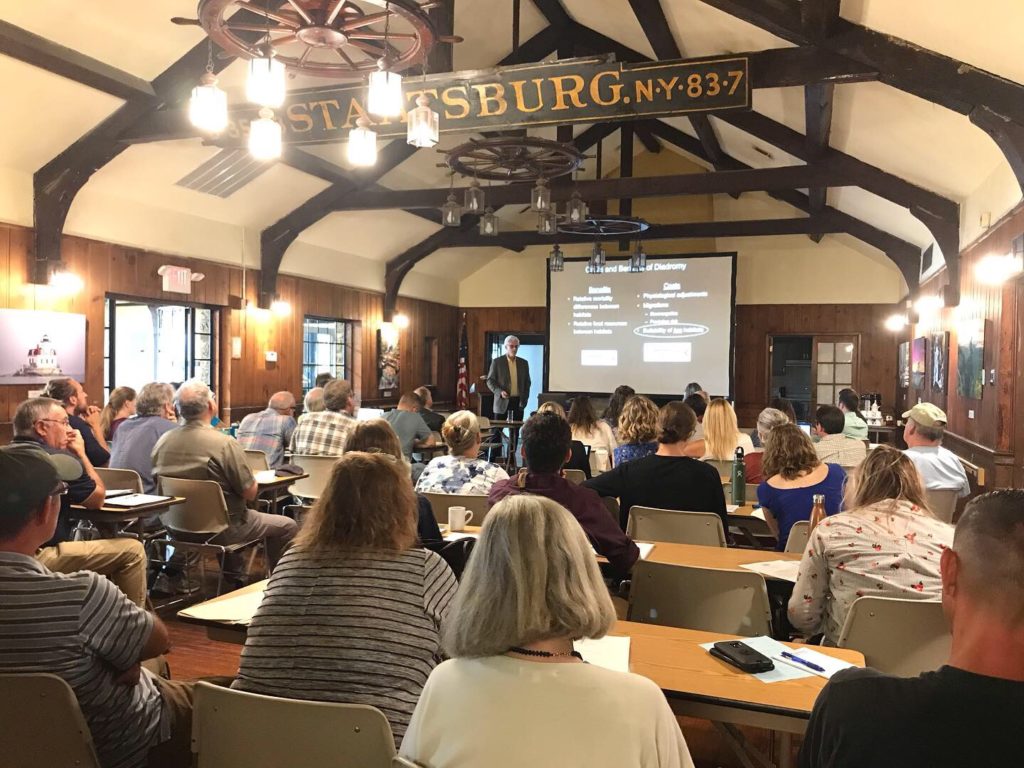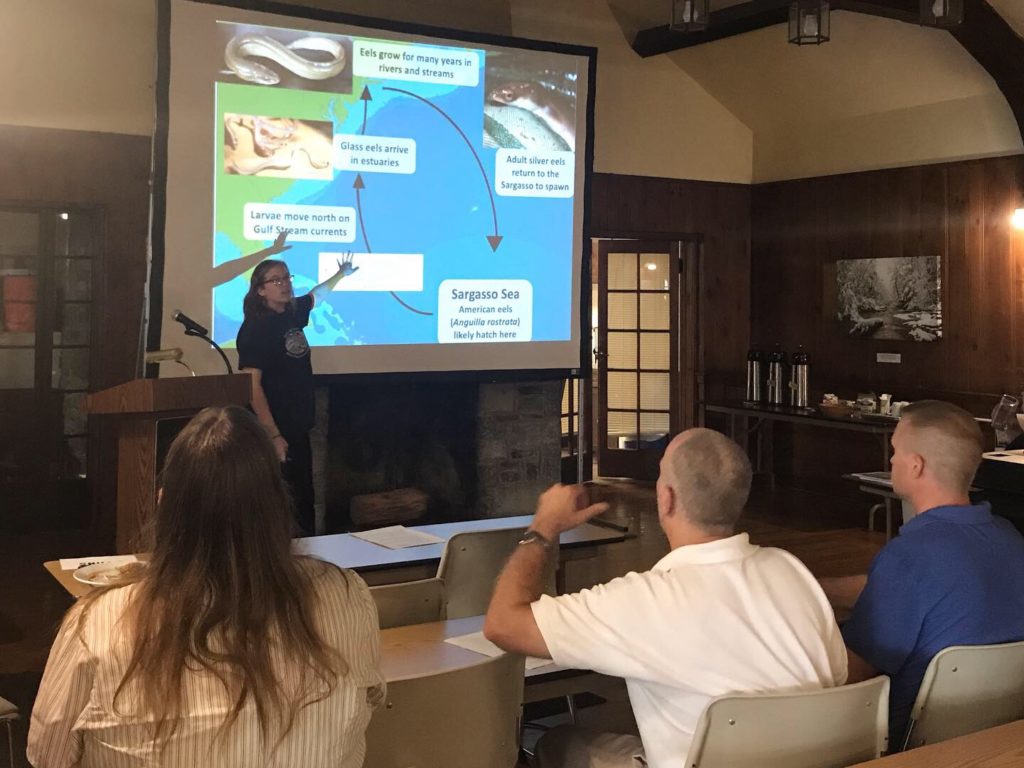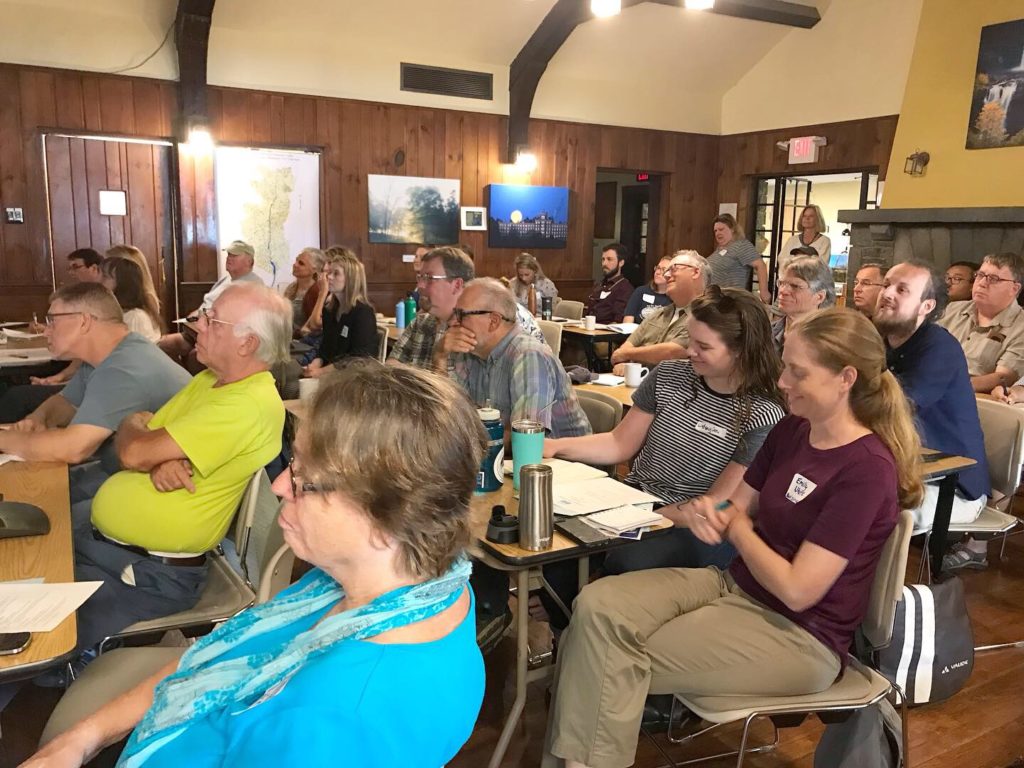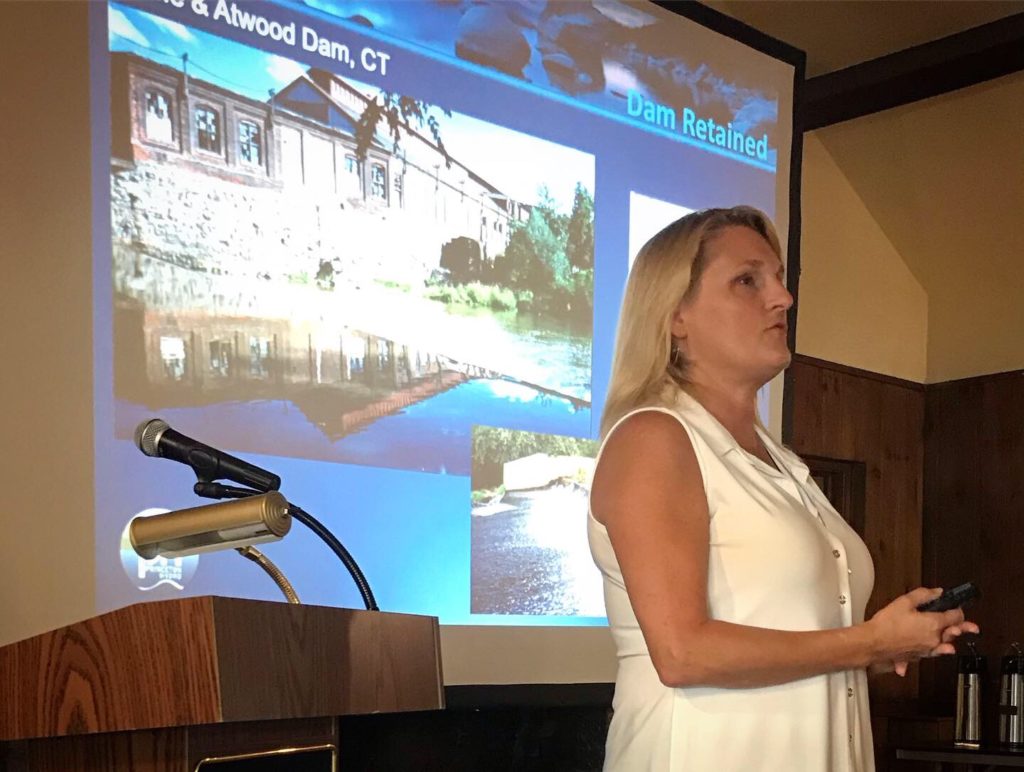Thursday, August 22, 2019
9:15 AM – 4:00 PM
Norrie Point Environmental Center
256 Norrie Point Way, Staatsburg, NY
There are over 10,000 culverts and over 1,000 dams on tributaries to the Hudson River estuary, and this infrastructure can block fish, wildlife, and flood flows in streams. This free, all-day workshop described how culverts and dams act as barriers in Hudson River tributaries, and what we can do about it. Speakers shared available information and how to move from assessments to actions to improve stream connectivity and reduce flood hazards in communities. We also discussed opportunities to develop shared solutions for streams and communities.
Introduction & Welcome – Emily Vail, Hudson River Watershed Alliance
Introduction & Welcome – Emilie Hauser, Hudson River National Estuarine Research Reserve
Introduction & Welcome – Fran Dunwell, NYS DEC Hudson River Estuary Program
Reconnecting the Hudson Watershed and Other Atlantic Rivers – John Waldman, Queens College
The Culvert Connection – Megan Lung, NYS DEC Hudson River Estuary Program
Local Road Stream Crossing Management Planning – Tracy Brown, Trout Unlimited, & Vince DuBois, Trout Unlimited Columbia-Greene Chapter
Fixing Problem Culverts – Art Merrill, Town of Colchester Supervisor
Local Laws and Opportunities: Ossining Case Study – Gareth Hougham, Hudson Valley Arts & Sciences
Dam Safety in New York – History and Regulatory Framework – Alon Dominitz, NYS DEC
Undamming the Hudson River – George Jackman, Riverkeeper
Removing Barriers and Resolving Conflicts – Laura Wildman, Princeton Hydro
Eels and Barriers – Sarah Mount, NYS DEC Hudson River Estuary Program/Hudson River National Estuarine Research Reserve
Resources and Opportunities – Megan Lung & Brian Buchanan, NYS DEC Hudson River Estuary Program; Corbin Gosier, NYS DEC
Closing – Scott Cuppett, NYS DEC Hudson River Estuary Program
Organized by the Hudson River Watershed Alliance and sponsored
by the Hudson River Estuary Program,
New York State Department of Environmental Conservation, with support from the
New York State Environmental Protection Fund, in cooperation with the New
England Interstate Water Pollution Control Commission. Assistance from the
NYSDEC Hudson River National Estuarine Research Reserve.
